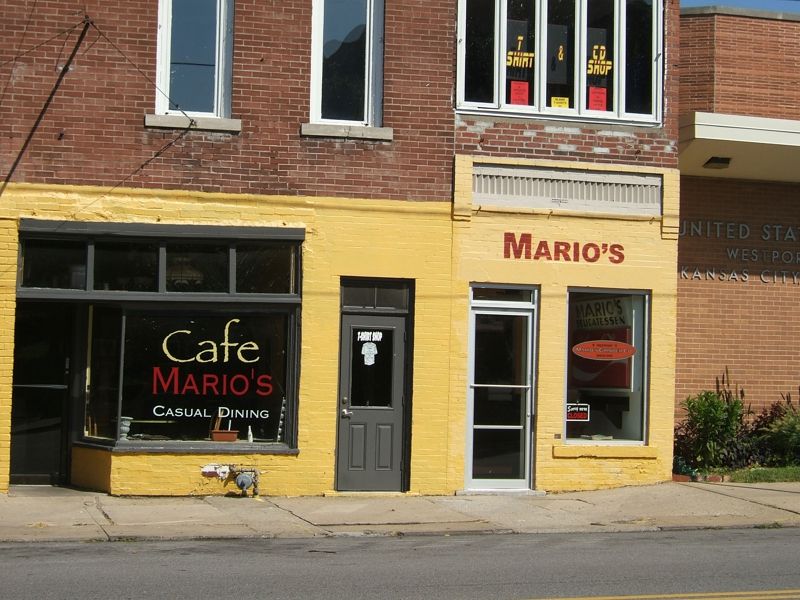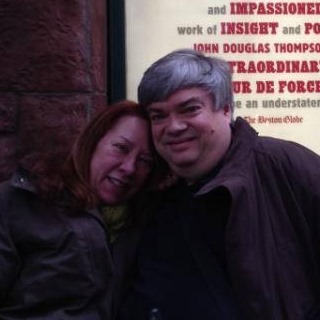Memory is the key to a small town. A stranger driving through Smalltown, U.S.A., would see nothing but schools, stores, and houses. Some are handsome, others nondescript, but all have one thing in common: the important parts are invisible, at least to eyes unaided by memory. This is why people like me never like to hear about how their home towns have changed since they moved away. Every change in the place where you grew up is an insult, a run in the homespun fabric of recollection.

Yet I hardly ever go back to Kansas City, for the perfectly good reason that none of my family lives there. Though my parents are dead, my brother lives in the house where they raised us, and I never lost touch with them, or him, after I left home. I visited Smalltown two or three times a year until the death of my mother in 2012, and I’d still be going there fairly regularly were it not for Mrs. T’s illness, which keeps me close to what I now call home, home being wherever she is.
Kansas City is different. Love it though I do, it’s hard for me to justify going there unless I have a compelling professional reason: a lecture, a book tour, a show to review. Given the choice—and the choice rarely presents itself these days—I’d rather visit Smalltown and spend time with my brother and sister-in-law. As a result, I didn’t get to Kansas City between 1999 and 2009, or between 2013 and 2019, and it’s quite possible (though I’d hate to think so) that I’ll never be back there again.
Therein lies the fundamental difference between my relationships to my two home towns. I go back to Smalltown as often as I can and talk to my brother on the phone in between visits, so I usually have a pretty good idea of what’s going on there. If one of my high-school teachers dies or a local landmark is torn down, I hear about it. But I don’t keep up with Kansas City in that way, and so when I do go back, I’m likely to be surprised—even shocked—by the changes I see.
No sooner did I learn of the demise of Mario’s than I started thinking about the women I’d taken there. For the most part, I didn’t have to wonder what they were up to, since I’m in touch with a good many of the women in whom I’ve taken more than a passing interest through the years. Not only are they still alive, but nearly all of them ended up getting married, usually happily (if not always on the first try), and have children who appear to have turned out well.
I, too, am happily married, albeit childless, and I never sit around pining for what might have been. What was and is, after all, have both proved to be wholly satisfying. But when you get to be my age—I turned sixty-four today—you can’t help but think about the roads you didn’t take, the unknown and unknowable possibilities of which Stephen Sondheim speaks in the song of his that I love best: The road you didn’t takeHardly comes to mind,
Does it?
The door you didn’t try,
Where could it have led? To be profoundly happy with your life, as I am, doesn’t mean that you don’t wonder what would have become of you had things taken a different turn, if you’d kept on playing jazz on Saturday nights or brought a particular girl back to Mario’s a second time. Growing older makes you ever more intensely aware of a fundamental reality of life that I tried to put into words long before I’d heard the song whose lyrics it irresistibly suggests:
We are born into a vast room whose walls consist of a thousand doors of possibility. Each door is flung open to the world outside, and the room is filled with light and noise. We close some of the doors deliberately, sometimes with fear, sometimes with calm certainty. Others seem to close by themselves, some so quietly that we do not even notice. “I want to play the violin,” I said to my parents one day, and nobody bothered to tell me that a half-dozen doors slammed shut at that very moment—not just the door marked BECOMES JAZZ TRUMPET PLAYER but the one that said BECOMES SMALL-TOWN LAWYER AND SPENDS LIFE IN SMALLTOWN, the one my father would someday encourage me to walk through, not knowing that it was already bolted shut.

Are all my doors closed now? It wasn’t until I turned fifty-five, after all, that I walked through a door marked WRITES PLAY AND HAS IT PRODUCED of whose existence I had hitherto been unaware, and five years later I stumbled across still another open door marked BECOMES STAGE DIRECTOR. It’s altogether possible, then, that even bigger surprises await me.
Still, one thing’s for sure: I’ll never again take another first date to Mario’s Deli, invite her to tell me all about herself, and wonder as I listen whether she might possibly be the girl of my dreams. That’s part of what it means to be sixty-four—that and the fact that you’ve learned, if you’re half as lucky as I am, that your biggest dreams have already come true.
* * *
Rufus Wainwright sings “I Wonder What Became of Me,” written by Johnny Mercer and Harold Arlen for the score of St. Louis Woman:
